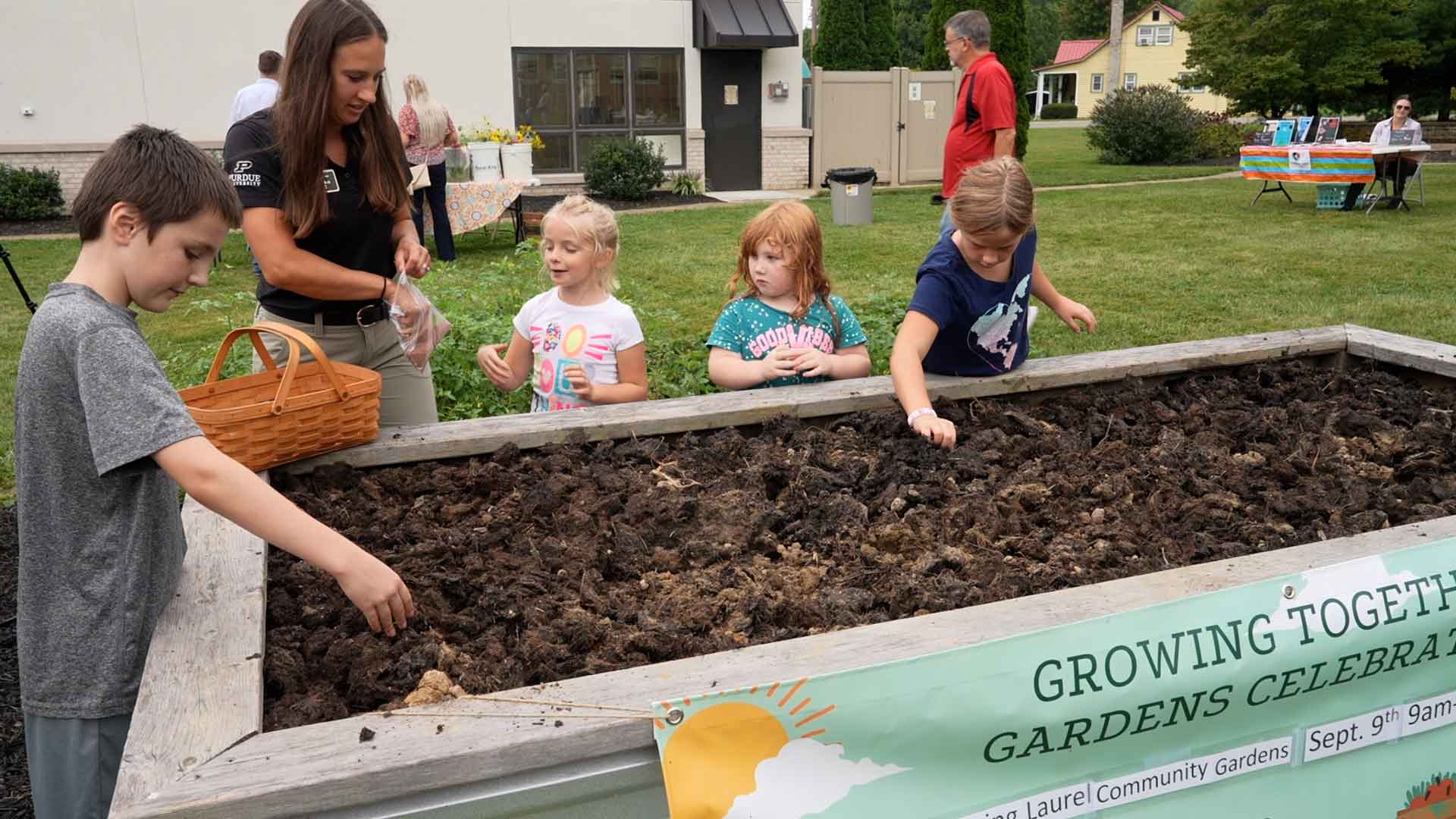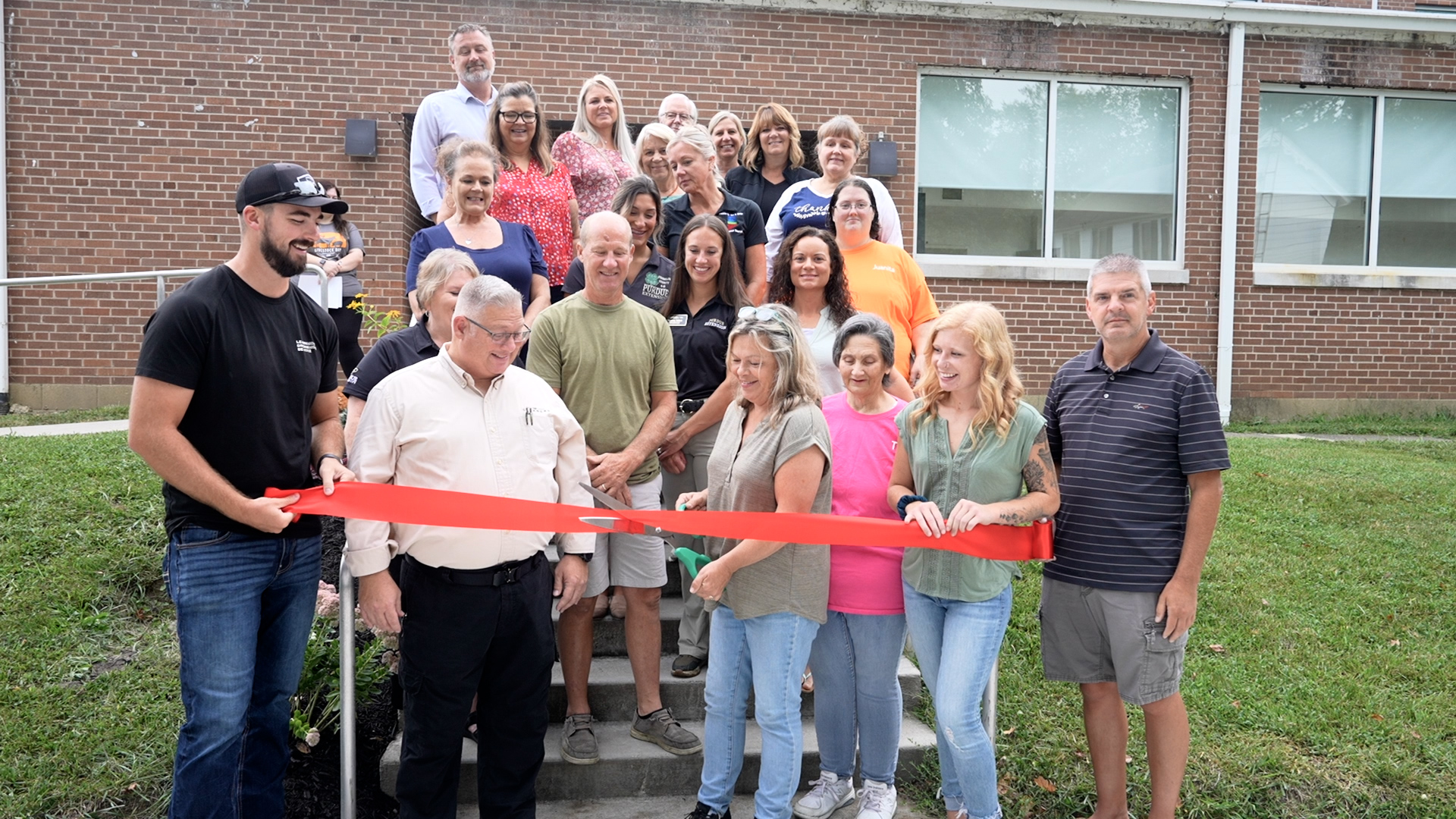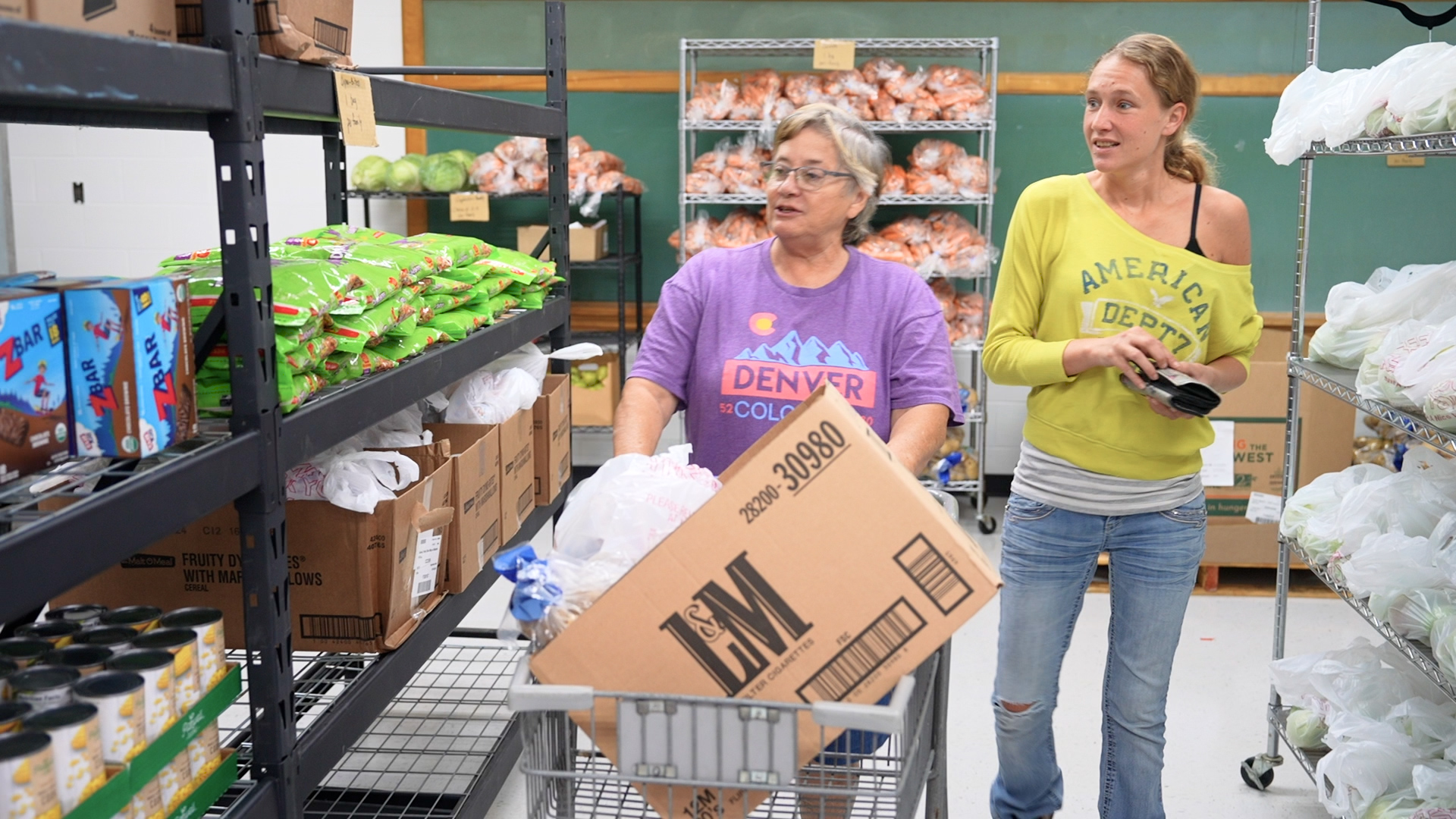Small town, big changes and giant impacts—Restoring pride in Laurel, Indiana

“It looks like a town lost in time,” Becky Marvel, a community wellness coordinator for the Purdue Extension Nutrition Education Program (NEP) said, reflecting on a place where she’s spent the last year and a half working: Laurel, Indiana. “The railroads had gone through there, and there’s some beautiful houses, but now everything has just stopped.”
The 510 citizens of Laurel have no grocery store and rely on two in-town gas stations for their food unless they have the transportation to look elsewhere. They aren’t alone. Lots of rural, small towns that had once been booming centers of commerce and opportunity get left behind as companies close down or move away. Without access to supportive jobs, many people leave. Those that stay are often left without the resources necessary to thrive.
“There are families that do not qualify for any government aid, but, yet, they’re still at that poverty level,” Jana Connolly shared. “Each community knows who is in need in their community, and I feel like we can help them better.”
Connolly, a mail carrier in Laurel who saw the food insecurity in her community, was put in touch with Marvel by her nephew. Marvel has a background in early-child development, building communities as a 4-H leader, serving as a parent educator and community wellness coordinator, and teaching children and families about nutrition as Purdue Extension NEP’s Professor Popcorn. She knew this lack of fresh produce was a solvable problem. With the help of Veronica Bullock, the agriculture and natural resources extension educator for Franklin County, Marvel and Connolly set out to help the community.
They were awarded a Growing Together grant from Purdue Extension that sponsored NEP and the Master Gardeners program to start community gardens in Laurel and the neighboring town of Brookville. Laurel’s garden not only provided over 300 pounds of fresh fruits and vegetables to the town, but it also provided seeds and opportunities for community members to learn how to start their own backyard gardens.
The community garden and the new hoop house, a semi-permanent type of greenhouse that extends the growing season, are between the Laurel Public Library and the Laurel Community Center. A Gleaners food pantry is the first service to occupy the space.
This increased access to food and development services has already had major impacts on the community. In just its first two days of operation, the food pantry served 135 families and 477 people. Brooke Dunsmore, a mother who lives nearby, shared, “There are a lot of big families in Laurel. I have four kids, so when they come home, they’re always starving. It takes a lot to feed all these kids. So, I think the food pantry will really do good here.”
Not only did Marvel, Connolly and Bullock start breaking down the walls to food security in Laurel, but they also see how their work is bringing the community together. The town has started its own non-for-profit group called Growing Laurel to beautify the town. They have built raised beds for the community garden and are now planting pollinator gardens with bright flowers that will attract birds, bees and butterflies as well as human visitors.
A 4-H club has been formed in Laurel, and Extension is also offering more programs in Laurel. One 4-H member from over an hour away even took public transportation to be a part of the Nature of Teaching program at the Growing Laurel Community Garden.
One of the gentlemen who got involved with us started his own landscaping business, and he donates a lot of his time because he wants his little town to be clean again. Now, he serves on Growing Laurel. To give pride to a community again, that's the key to bringing some positivity into a place that has been really hit hard over the years.
- Becky Marvel, Community Wellness Coordinator in Franklin County

